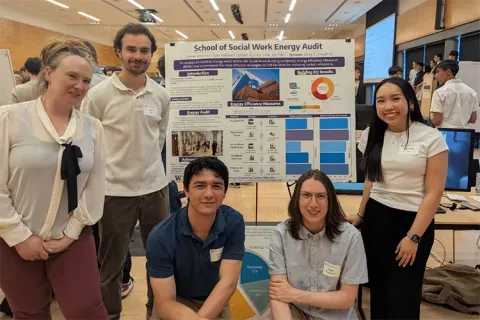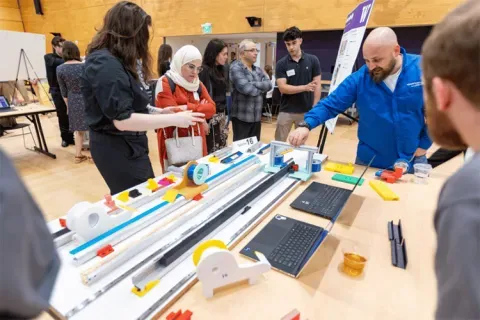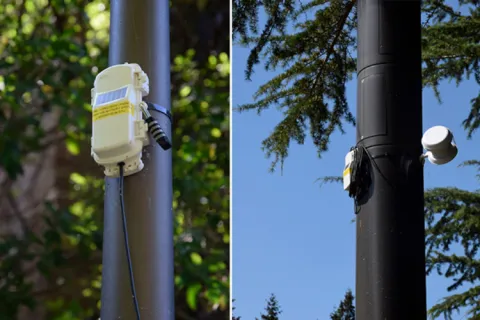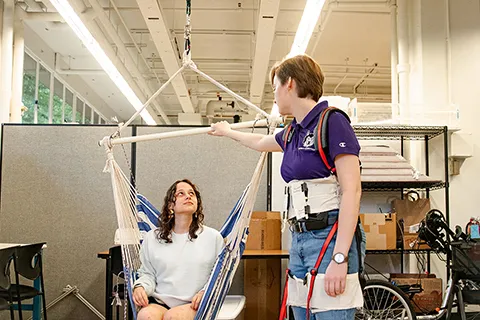Pacific Northwest National Laboratory (PNNL)
Thermal Gradient Energy Harvesting Device for Powering Unmanned Underwater Vehicles
There is a demand for self-powered unmanned underwater vehicles (UUVs) suitable for long-term deployments for ocean environmental monitoring. Thermal gradient energy-generation technologies for powering UUVs or autonomous sensing systems in the ocean are mainly in the research development phase, and further research related to small-scale ocean thermal gradient energy systems is needed. Phase change materials can be used to power a buoyancy engine and generate electricity, but currently have low efficiencies. This student team developed conceptual solutions for increasing the efficiency through improved mechanical architecture and design, and a benchtop prototype design for demonstrating the working principle and performance of a novel PCM-based thermal energy harvesting system that has the potential to improve energy harvesting efficiency over traditional PCM-based designs.
Faculty Adviser(s)
Eli Patten, Mechanical Engineering
Related News

Mon, 10/13/2025 | UW Mechanical Engineering
Capstone collaboration leads to award
An ME capstone team received first place for its energy audit of the UW School of Social Work building.

Mon, 07/07/2025 | UW Mechanical Engineering
Capstone creations
Students displayed innovative capstone design projects at the 2025 expo.

Fri, 09/20/2024 | UW Civil & Environmental Engineering
Smarter irrigation for a greener UW
A new project combines satellite data with ground sensors to conserve water and create a more sustainable campus environment.

Mon, 09/09/2024 | UW Mechanical Engineering
Testing an in-home mobility system
Through innovative capstone projects, engineering students worked with community members on an adaptable mobility system.